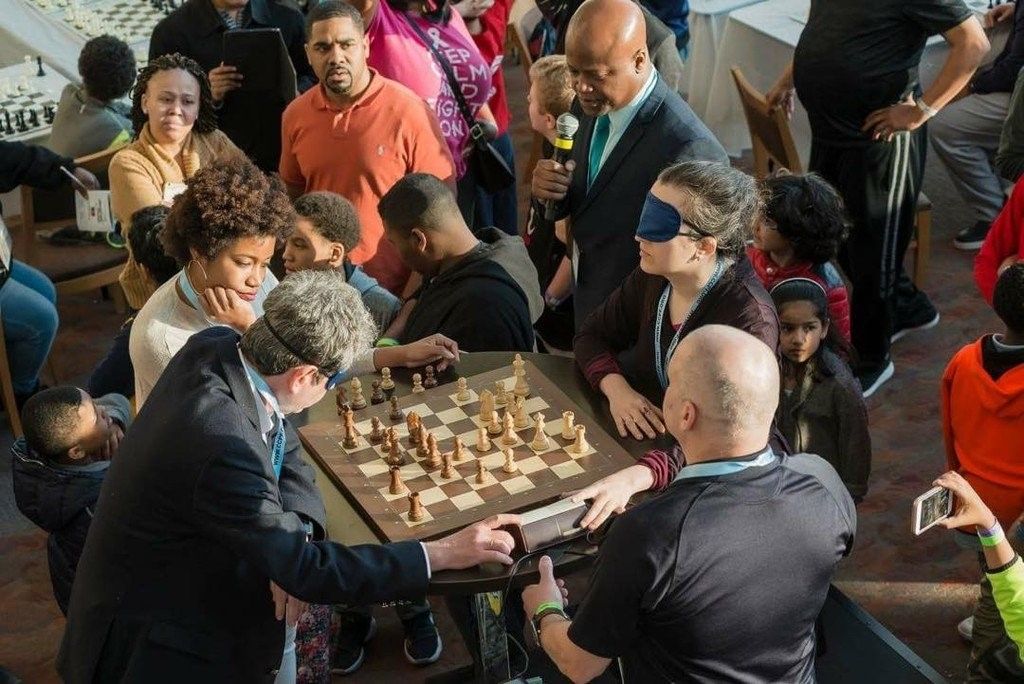In June 2018, I first wrote the article “When Chess Teaches Marketing on The Principles of Strategy” to share my initial thoughts and contemplation on these two subjects which had many similarities. After all, chess is a simplified replication of warfare, and marketing or management is somewhat a modern version of warfare in its best form. Three years later, when my chess thoughts and skills have matured, I also discovered new aspects of parity between the two which inspire me to write the continuation on this series. This time, I take a more abstract viewpoint to approach this game which in turn I hope will produce more profound insights.
So again! Do you play chess? Do you work in marketing? These are two basic questions that I strongly recommend for everyone asking themselves before heading down into the details. Below are the six new discoveries that I have found
#1: Misconception on strategy
As I might touch base on this matter in the previous article. There is a widespread misconception that chess is about strategy while in fact, it is not that much so. Probably we have been all mistaken by the use of chess in imagery to amplify management strategy such as this image, but this is not true.
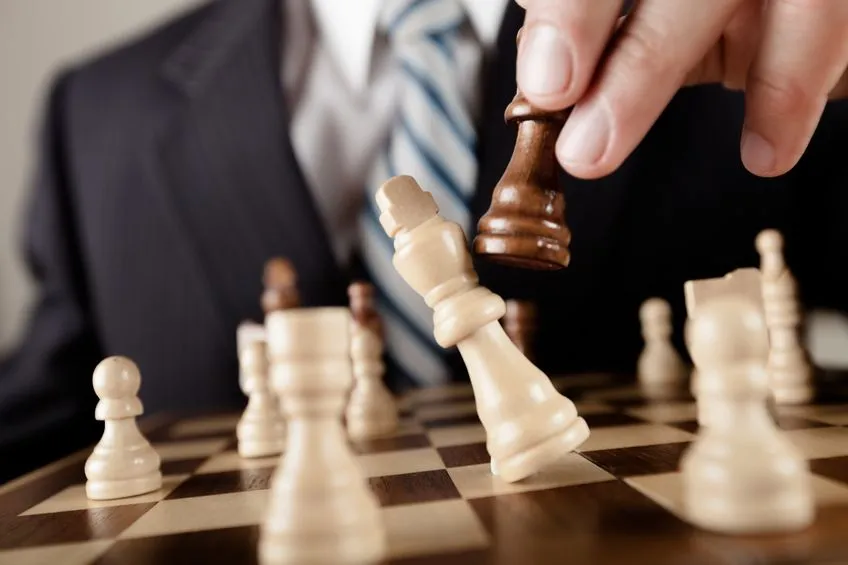
Throughout the history of chess and all its variants, strategy has always been a part of the game but not at all the core of it, or at least not in the version of international chess as we know it. International chess is known by chess experts to be more about tactics than strategy, although to excel at chess one must master the strategy aspect of the game too. One reason that could be used to back up this notion is the lack of long-term planning in the game. To exemplify, chess game result is usually decided by short-term calculation and accuracy of play. There is not much accumulation of precise strategy since there are an averagely of about 40 moves per side in a chess game. Thus, if a person is more in favour of strategy, the Chinese game of Go is more suitable as Go is a much longer game, and even after the game is over, the result is still unsure. It can only be decided by regression calculation of points of the board after both players have stopped playing.
To recap, there are many variants of strategy games such as Chess, Chinese chess (Xiangqi), or Go, and each variant has its emphasis on a different aspects of the thinking process. In my opinion, Chess is about tactics; Xiangqi is about attack and only Go is a true strategy game which resembles the warfare that it originated from.
Similarly, I think there are many people in the marketing and management worlds that mistake their jobs as a strategy. Certainly, all activities contribute to the success of the strategy, but not all are not a part of the strategy itself. Most of the time, people mistake strategy for execution, goals, or even false hope, and thus this misinterpretation act as a defect undermining the whole business process which eventually will the management to its doom. I have met and talked to many CEO- and CMO-equivalents in companies of varying scales and sizes and some of them really do not have the strategic sense that I would expect from such a C-suite roles. Unfortunately, this reality is not rare as Vietnam is a thriving economy with a plenitude of opportunities, which encourage a generation of business people who have enormous resources and network to utilise but only can think about “what is now” rather than “what is next.” Sometimes, they could even credit their successes to strategy while it might be only the probability of chance or abundance of inherited resources. Of course, a rising tide lifts all boats.
In short, I think the misconception of strategy is prevalent in both the chess and management worlds nowadays. However, true comprehension of its nature and definition is necessary for implementation, and I believe the presence of strategy in the context of marketing and management, especially in a rapidly growing economy like Vietnam, is crucial to maintain healthy growth of those companies in the future when Vietnam economy is truly integrated into the worlds.
#2: Visual ability plays a key role too
Another misconception of chess that is noticeable is “chess is all about logical thinking; thus those with high IQ will prevail at chess.” To be fair, the ability to calculate logically is imperative to be good at chess, but it is not the only one. In a recent study, the author Howard Gardner has proven that humans have up to nine types of intelligence with which I believe not only logical intelligence but also visual intelligence contribute to the success in chess and in management.
To elaborate, let’s take blindfold chess as an example.
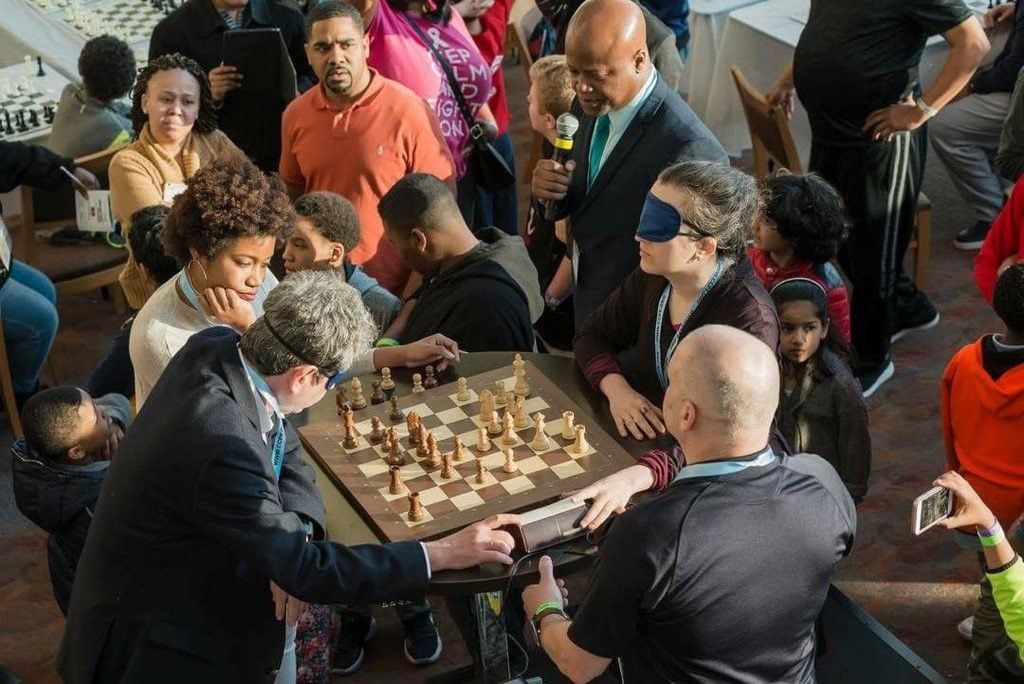
Unlike regular chess, blindfold chess players do not need chess pieces or board, both players will compete in their minds using a communication method called notation to keep track of the move that both have made. In the picture above, the boards and pieces are only for the sake of the spectators. For this reason, the ability to visualise and retain the pieces’ positions in the mind and visualise the moves till the end of the game is fundamental of blindfold chess. A player with only logical ability cannot compete in this format and very much in the regular one because, with or without the board, both regular and blindfold chess employ the same principles of visualisation and imagination when they calculate several moves ahead without actually moving the pieces on the board.
In marketing and management, similarly, I believe logical thinking along cannot prevail as it is insufficient to cope with the complexity of today’s economy. Marketers and business people need to employ much of their visual ability and even creative ability into their businesses in order to cope with changes and thrive. The abilities to foresee both market changes and competitors’ moves ahead, visualise the corresponding strategy to capitalise on the next trends of growth are all criteria for a great marketer, manager and future management leader. Logical thinking can take one from A to B, but imagination makes the leap to end-result and I believe the latter formula will be much more common for competition and success in the 21st century.
#3: Intuition matters as much as calculation
There is a myth that a Grand Master of chess is capable of calculating 20 moves ahead, so they see through everything from opening to endgame. I myself believed in this myth when first joining the chess community, but now I know that it is not true. Grand Masters just like any other human beings have a calculation limit which I know best to be about 6 moves per side ahead just like any well-trained chess expert. However, the ability that sets them apart from the majority is their intuition after tens of thousands of training hours. During these hours, they familiarise themselves with chess patterns that would arise from standard positions and a few candidate moves that would be considered. In the real game, fast or slow chess alike, they all rely on this trained intuition to make moves that feel natural to them and, most of the time, lead them to favorable winning positions.
For example, Magnus Carlsen has been the world chess champion since 2013 and he has the world’s #1 rated player even way before that. Many believe that he will be the reigning champion for many years to come, but the fact that Magnus Carlsen suffered an overwhelming defeat in Chess 960 format versus Wesley So is an obvious example that in many cases familiarisation in patterns and trained intuition are much more important than pure talent and calculation. Magnus Carlsen and Wesley So are both Super Grand Master but their preference for chess variants does vary as Wesley So is a much more frequent 960 Chess player than Magnus Carlsen.
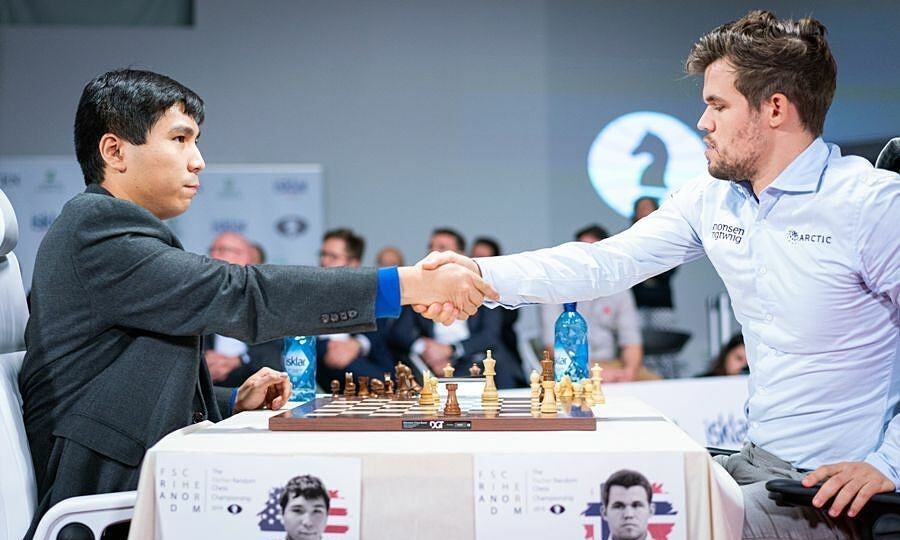
This analysis also explains why in marketing and management experience and intuition are very important especially in urgent and complex circumstances. Some may argue it is illogical to rely on feeling for decisions of great impact, but this chess example has proven that even in a perfectly logical game like chess, intuition still plays a major of the decision-making process. Marketers and managers therefore cannot defy the importance of experience and trained intuition for any corporate decision making, not to mention the fact that the mechanism of an economy is profoundly more complex than a chess game. Still, there is nothing more devastating than following intuition without any preceding experience on a similar subject.
#4: The evolution of speed
Throughout the history of chess, the game has gotten shorter and shorter in time. Before the presence of the chess clock, one game could last for hours or even days. Then FIDE came along and the division of this game into three basic formats of classical, rapid and blitz has made the games more suitable for everyone rather than just the professionals. Recently, the booming of the Internet and prolonged lockdown periods have encouraged more people to play chess online leading to the newest format of chess called bullet with which a game can last for less than a minute.
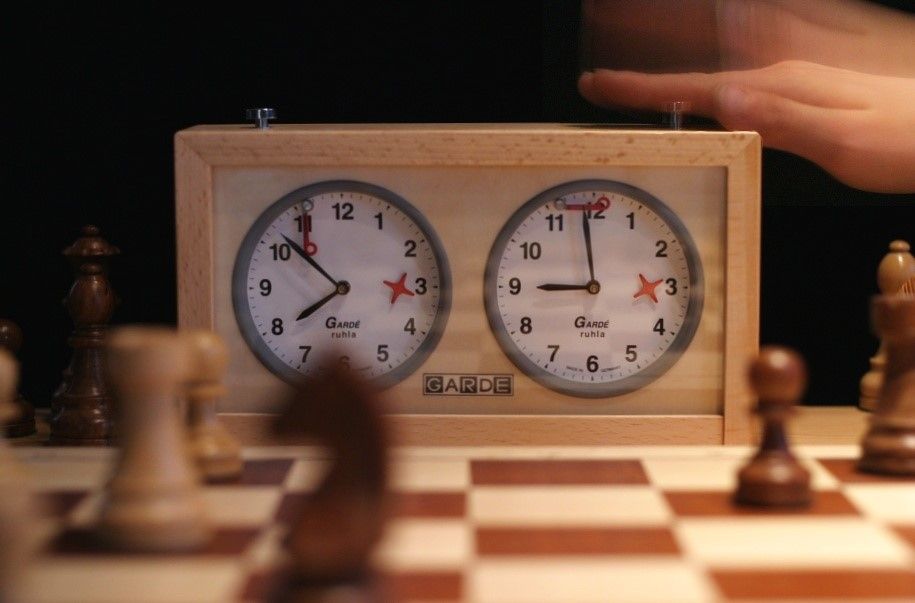
My inference on this matter is not only chess but also the business is getting much faster these days. Speed is a new advantage, although there is always a trade-off between speed versus accuracy. Nevertheless, the ability to move fast without much sacrifice of accuracy would create an edge for any contender. In chess, both Magnus Carlen and Ian Nepomniachtchi are great examples of speed chest specialists as they are both in top five rankings now. In business, the current space race of Virgin Galactic against Blue Origin has also proven how important it is to be first than to be next. As the change of information era has shaped chess and management in what they are today, the speed mindset shall be the right mindset to compete as we witness more lean start-ups being established while big corporations are losing the race due to inertia and exhaustion.
My conclusion is, in time, any matter will take a new form, and the next just happens to be faster than the last. The right mindset is not the mindset of depth but the mindset of speed. This reality applies in chess, marketing, management and even economy.
#5: A game of probability
In chess, there is a concept that is called the “perfect game” which is a game played with an accuracy of near 100%. Every player has experienced it whether professional or amateur because there is also a chance that an amateur can perform a top-notch game sometimes in life, and vice versa, a professional sometimes can perform poorly as well. Accordingly, there is always a probability that an amateur can beat a professional, regardless of difference in level, giving the condition that they could play enough number of games.
In marketing and management, probability contributes significantly to success than what we think it does. Most of the time people are hallucinated by the charisma of successful entrepreneurs or businessmen and tend to listen to their advice as formulas of success. The truth is these successful people may be just as clueless about their achievements as much as we do. Given the hypothesis from chess game, we know that if we line up 1,000 average players against a chess master in a simultaneous exhibition, there will be some of those 1,000 amateurs who emerge victor just by the chance of probability.
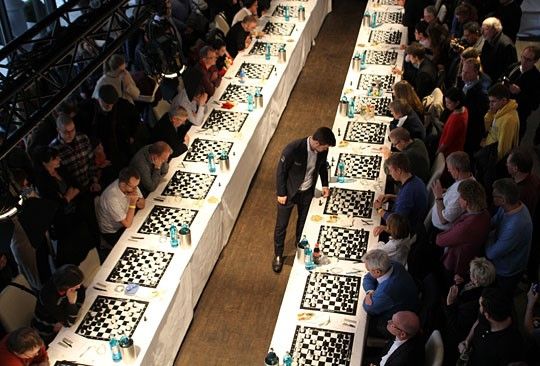
Do other people think those winners are better than the chess master and those who lost? Of course not! Would those winners themselves think they are better than the chess master? Of course not!
Imaging the same simultaneous exhibition is applied in business as 1,000 capable entrepreneurs lined up against the market and the criterium for success will be a certain amount of revenue after a certain amount of time, I am certain that some of those entrepreneurs will “beat the market” by emerging successful at the end of the given period. Again, this is merely probability. The situation is the same, but only the answers are different!
Do we consider these successful entrepreneurs better than those losing entrepreneurs? Certainly yes! That is why normal people pay to listen to their advice and secret to success. Do these successful entrepreneurs consider themselves more capable than those losing entrepreneurs and the average people? Certainly yes too. That is why they go to seminars and share advice and tips and tricks. Last but not least, should we – normal people including you and me – listen to them and follow their “proven track record”? I will leave this question to the readers’ own consideration.
In summary, the conclusion raised in this aspect of similarity is not to distrust any successful businessman or entrepreneur of their capabilities, but rather to encourage skeptical thinking as well as thorough examination when taking advice from other people. Malcom Gladwell, the author the book The Outliner, and Daniel Kahnman, the author of the Thinking Fast and Slow, have both given more proof that successful people rely much more on their luck for success than they think they do.
#6: Automation is the future
Since May 1997, artificial intelligence has surpassed human intelligence in calculation by the defeat of world chess champion Garry Kasparov against the IBM supercomputer Deep Blue. This event brought people to the attention of a new force of supercomputer in the field of strategy games. Nine years later in March 2016, another world champion Lee Sedol lost to the supercomputer AlphaGo in the game of Go, marking the end of human dominance in any type of strategy games. Ever since then, the calculation power of supercomputer has increased exponentially leaving no space for human competition in this field of work. Nevertheless, by leveraging on this enormous calculation power of machines, stronger generations of chess players have been born, as chess players have learned to combine the calculation superpower of machine to human’s abstract thinking capability and creativity. Machines – or intelligent machines – after all are just a form of human creation, so we humans do not need to fear them, but rather we should learn to work with them to break the next frontier of intelligence together.
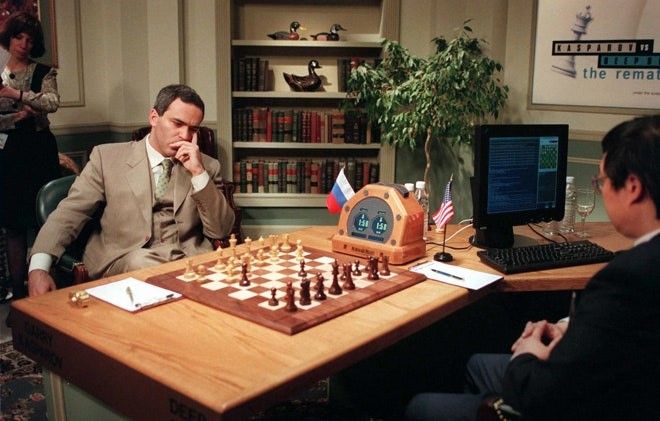
In the world of chess, this phenomenon has proven that humans are capable of ascending to the next level if we learn to incorporate the power of machines in our aspects of life. In the world of business, I believe the same principle should be applied to liberalise the human resources that are being spent on repetitive tasks. Those resources could better be utilised for creativity or any abstract thinking kind of work. Indeed, the whole idea of incorporating automatic or intelligent machines into business’s production lines is to enhance productivity and to shift humans to other fields of work that we do best. As the matter of fact, this explains why in the next decade many job types will disappear and many more will be created in which creativity is a new focus rather than any logical or repetitive tasks.
As a result, I believe automation is inevitable, and those who choose to defy this odd will certainly lose. As in chess, people in business must learn to adopt technology into their operation process and life and are willing to shed the old skillset off, to unlearn, to learn, and finally, settle down in the new domain of expertise of the next century’s workforce.
Finally, I would like to give a closing remark at the end of this article that I am an academic and professional of marketing who is in search of lasting principles in nature, comparing them, contemplating them and eventually applying them to my work. It is rooted in my strong belief that if people aspire to build a successful business, they should not build it on any trend but, on the principles or anything that last. However, chess and management are sill two different matters, so any application of the common principles and strategies still needs to be relied on personal judgment, knowledge and capability.


